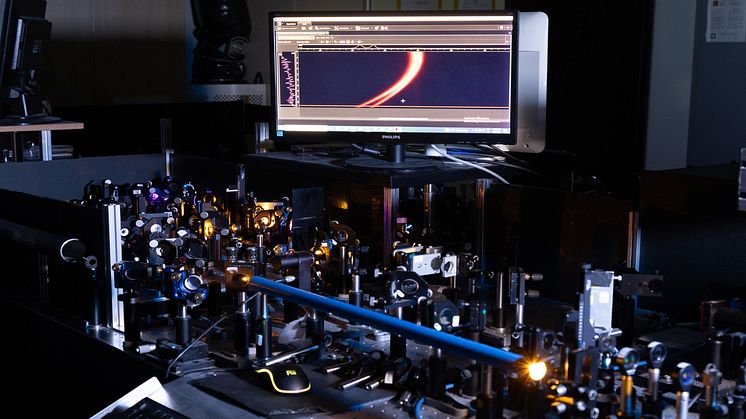
Press release -
Quantum tunnelling of electrons in bidimensional materials for logic gates of future optical computers
The work coordinated by Politecnico di Milano published on Nature Communications
Sustainable optical computers based on photonic logic gates with low power consumption, but also nano-scaled optical chips and novel sensors with high sensitivity: the research carried out by an international team coordinated by Politecnico di Milano in collaboration with University of Sheffield (UK) opens those new intriguing perspectives for the near future.
The researchers observed that the effect of quantum tunnelling of electrons between two adjacent layers of atomically thin semiconductors drastically modifies their transparency, after being illuminated by laser light. The work has been recently published on the prestigious journal Nature Communications.
More in details, the research team explored the effects of this bidirectional “transport” of electrons between a layer of an atomically thin material to another one, the so-called quantum tunnelling. Because of this transfer, the electrons are delocalized among the layers and they compete with the electrons localized in only one layer to occupy the same energetic state. This phenomenon follows the so-called Pauli exclusion principle, which also hinders the light absorption if the states are already occupied by the electrons. This process can strongly modify the optical properties of the employed materials, increasing their transparency after the illumination with laser light.
In summary, the competition between electrons generates a drastic decrease of the light absorption in such materials, increasing their laser-induced transparency.
The observation of such properties paves the way for new research horizons in the field of photonics and materials science, for future applications in optical and quantum computing.
The work (Interspecies exciton interactions lead to enhanced nonlinearity of dipolar excitons and polaritons in MoS2 homobilayers by C. Louca et al.) has been coordinated by the Physics Department of Politecnico di Milano and University of Sheffield (UK), in collaboration with researchers from University of Manchester and Exeter (UK).
It was partially funded by the European Union in the framework of the Graphene Flagship (project “GrapheneCore3” lead by Prof. Giulio Cerullo) and the Marie Curie Individual Fellowship project “Enosis” lead by Dr. Armando Genco.
Topics
Categories
Politecnico di Milano is a scientific-technological university which trains engineers, architects and industrial designers.
The University has always focused on the quality and innovation of its teaching and research, developing a fruitful relationship with business and productive world by means of experimental research and technological transfer.
Research has always been linked to didactics and it is a priority commitment which has allowed Politecnico Milano to achieve high quality results at an international level as to join the university to the business world. Research constitutes a parallel path to that formed by cooperation and alliances with the industrial system.
Knowing the world in which you are going to work is a vital requirement for training students. By referring back to the needs of the industrial world and public administration, research is facilitated in following new paths and dealing with the need for constant and rapid innovation. The alliance with the industrial world, in many cases favored by Fondazione Politecnico and by consortiums to which Politecnico belong, allows the university to follow the vocation of the territories in which it operates and to be a stimulus for their development.
The challenge which is being met today projects this tradition which is strongly rooted in the territory beyond the borders of the country, in a relationship which is developing first of all at the European level with the objective of contributing to the creation of a single professional training market. Politecnico takes part in several research, sites and training projects collaborating with the most qualified European universities. Politecnico's contribution is increasingly being extended to other countries: from North America to Southeast Asia to Eastern Europe. Today the drive to internationalization sees Politecnico Milano taking part into the European and world network of leading technical universities and it offers several courses beside many which are entirely taught in English.

